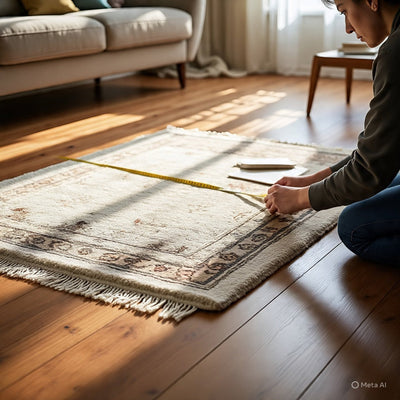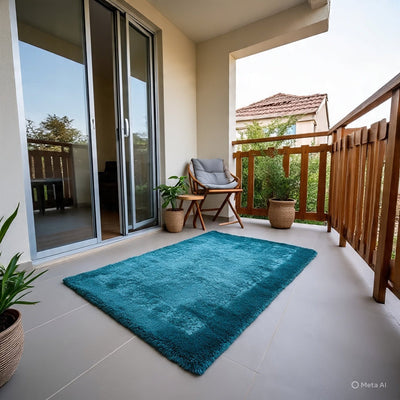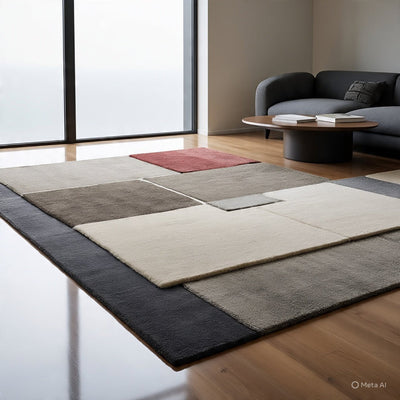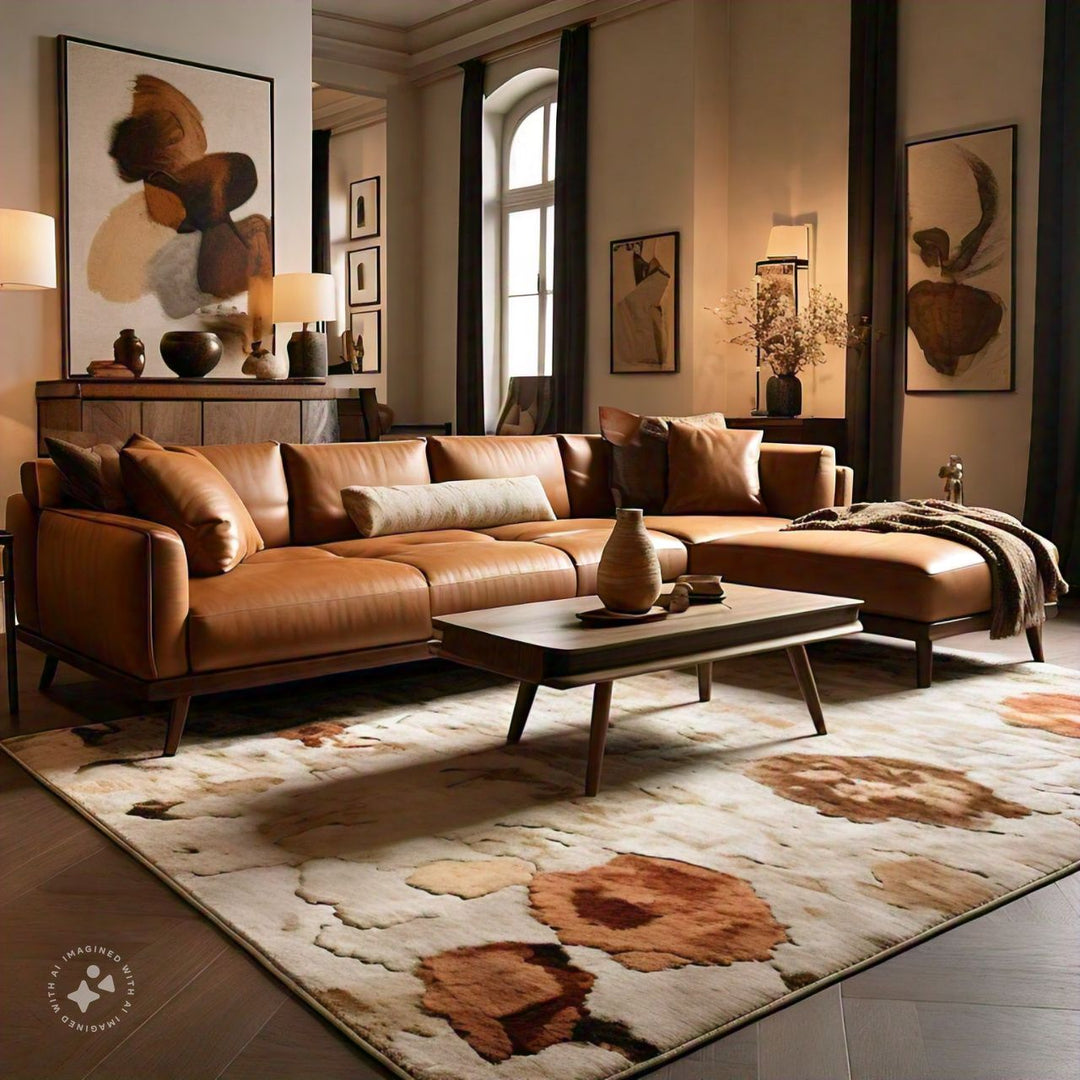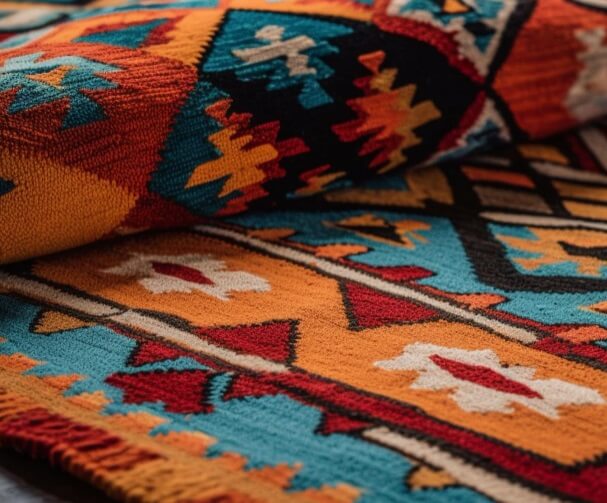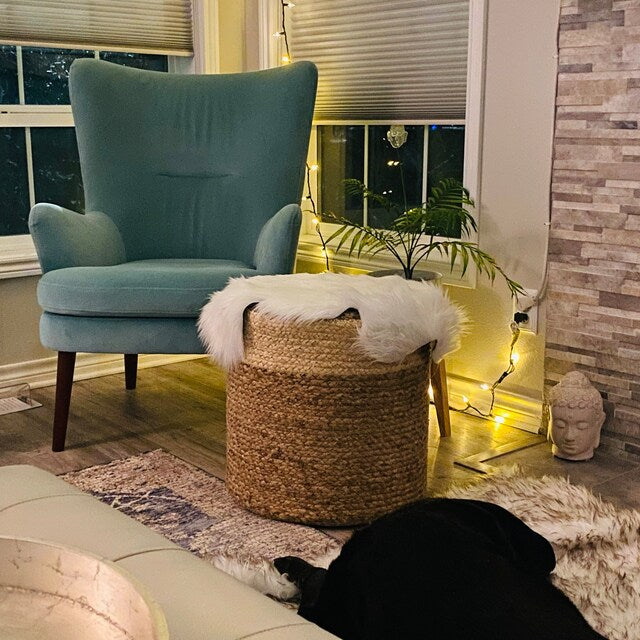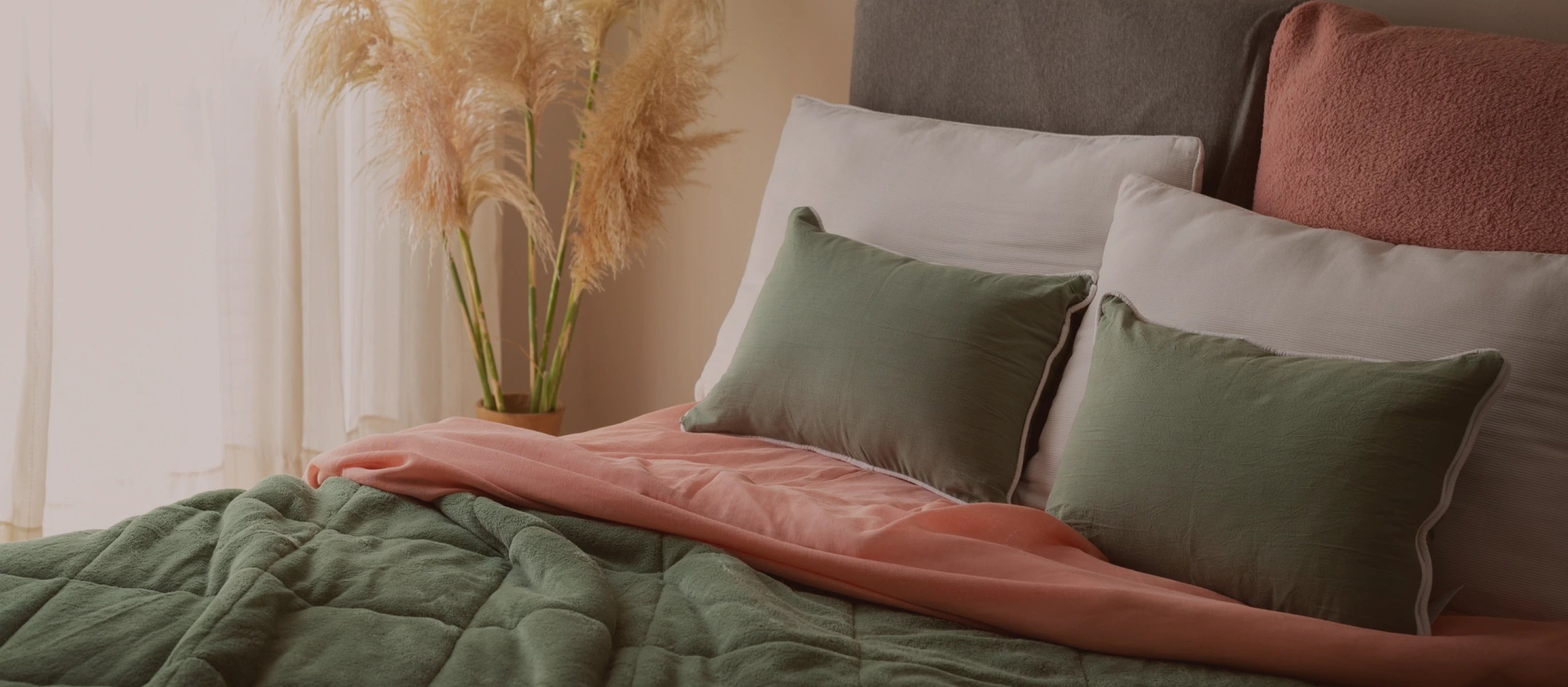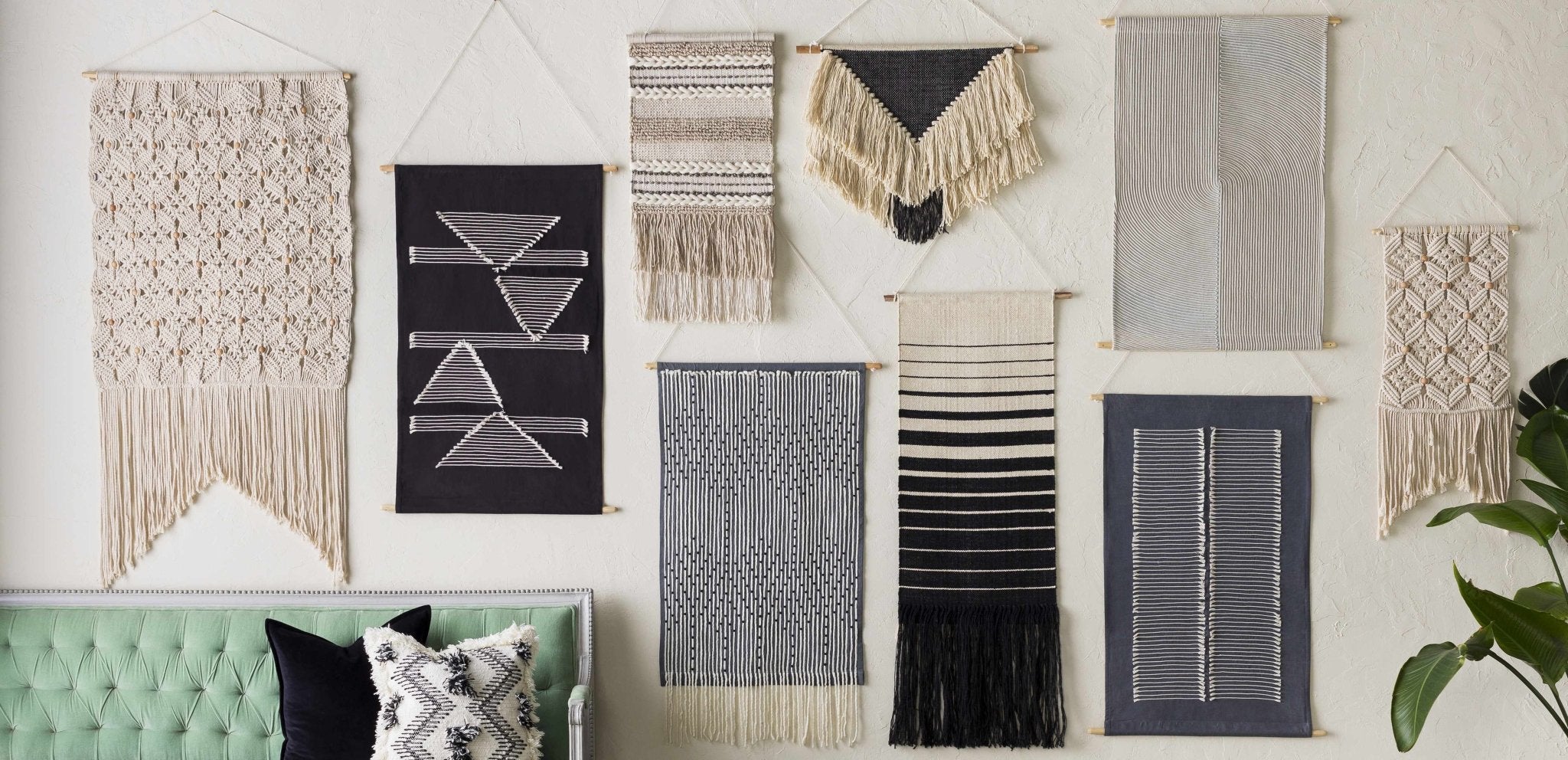Are rug pads necessary: Guide to the importance of rug pads
Introduction
There is no doubt about the fact that the perfect rugs can be the game changer for your home décor. It can add warmth, style, and comfort to any space almost instantly. Whether you want to upgrade the aesthetics of your workspace, bedroom, dining area, or living space, rugs play an important role in every aspect. However, in the process of selecting the perfect rug, what we often overlook is the rug pad. So, if you are asking, are rug pads necessary, the answer is a big YES every time. Note that a proper rug pad plays a crucial role in keeping the rugs looking perfect and being functional for a longer time.
In this post, let’s unravel the answers to the trending question, do I need a rug pad and also learn about the benefits of using one. Rug pads provide a wealth of advantages that go above and beyond merely cushioning the floors, despite their ostensibly simple purpose. These layers serve as an essential part of your investment, protecting everything from your flooring to the integrity of your rugs.
Keep reading till the end to know what is a rug pad, its benefits, and how to choose one for your home.
Top of Form
What is a rug pad?
Rug pads could be viewed as the unsung heroes of floor coverings in the realm of interior design. Just like a rug cushion, it sits between your rug and the floor, but it serves much more purposes than just acting as a layer. A rug pad is essentially a base that improves the functionality and durability of both your rug and the flooring.
A rug pad is fundamentally made of many materials, each of which has certain characteristics that add to its functionality. Common materials for providing grip, cushioning, and stability include natural rubber, felt, and synthetic blends.
A rug pad's main function is to give your rug a safe and solid base. Safety for anybody walking on the rug is ensured by preventing the rug from slipping and sliding around the floor, especially in high-traffic areas or homes with kids and pets. Rug cushions are essential for preventing potential harm to your flooring from the friction of the rug's fibers rubbing up against it.
So, do I need a rug pad? Yes, because these also considerably increase the comfort level of your rugs. The additional padding not only makes the floor seem more opulent underfoot but also helps to muffle noise. Spending time on your rug can be more comfortable thanks to the cushioning effect of a rug pad, whether you're standing, sitting, or lying down.
It's crucial to understand the basics of what a rug pad is and how it works as we proceed through this explanation on the significance of rug pads. You can assess their requirement in your living spaces on the basis of a thorough understanding of the materials they're composed of, the ways they improve safety and comfort, and their function in maintaining your floors and carpets. With this information, you'll be more prepared to enjoy the numerous benefits that rug pads offer.
Are rug pads necessary?
Are rug pads necessary is a common topic of discussion when deciding whether to use rugs in your home. Rug pads offer a number of benefits that go far beyond simple aesthetics, despite the fact that they can initially appear to be an optional addition. Let's explore the factors that make rug pads not just a luxury but also a crucial part of your interior décor.
Check out this list to know about the benefits if you are wondering why use a rug pad:
Enhanced Safety
Rug pads are an essential safety precaution because they prevent carpets from sliding or shifting on hard floors. This is crucial in homes with children, the elderly, or pets because a moving rug can significantly increase the chance of accidents. The grip of a rug pad guarantees that your rug remains firmly in place, reducing the possibility of trips or falls.
Floor protection
Rug pads are essential for maintaining the integrity of your flooring, which is an expensive investment. Over time, scuffing, scratching, and discoloration can occur due to the contact between the rug and the floor. A rug pad serves as a barrier of protection, stopping this kind of harm and guaranteeing that your floors stay in excellent shape.
Durability
Rugs may be a big investment, so you want to make sure they last for many years without losing their appeal or quality. Rug pads prolong the life of your rugs by minimizing damage brought on by frequent friction with the floor. The rug's fibers can stay undamaged and vivid since the cushion helps to absorb part of the impact.
Comfort underfoot
Rug pads provide additional cushioning, turning your rug into a cozy haven. The comfort of your surroundings is improved by the softness of the ground, whether you're standing, sitting, or lying down. This is especially useful if you have tile or hardwood floors, which can occasionally seem icy and harsh.
Noise reduction
In your living spaces, noise can be amplified by hard surfaces, causing echoes and disruptions. Rug pads reduce noise levels and foster a quieter, more serene environment by absorbing part of the sound waves.
Improved air circulation
There may occasionally be less airflow underneath rugs that are placed directly on the floor. This can cause a buildup of moisture, which might encourage the formation of mold and mildew. These moisture-related problems are avoided by using a rug pad, which raises the rug slightly and allows air to circulate freely.
Easy cleaning
It is simpler to clean both the rug and the floor below thanks to rug pads, which form a barrier between them. Your cleaning process will be easier because less dust, debris, and spills will likely soak through the rug and onto the floor.
Even surface
When placed directly on the floor, some rugs' uneven textures or backings may give them a lumpy or bumpy appearance. A rug pad gives your rug a nice, level surface to rest on, boosting its aesthetic appeal.
What type of rug pad is best for my floor?
It's critical to match the material and thickness of the rug pad you choose for your room with the precise type of flooring you have. The performance of your rug and the state of your floors can both be considerably impacted by the rug pad you choose. Here is a list of the best rug pads for different types of flooring:
Material and thickness
Rug pads are available in a variety of materials, each with unique advantages. While felt pads give comfort and are good for reducing scratches on hardwood floors, natural rubber pads offer outstanding traction and perform well on hard floors. Rubber and felt combined pads offer traction and comfort. Synthetic materials like PVC can also be used as inexpensive alternatives.
A rug pad's level of cushioning and endurance depends on its thickness. Particularly on cold, hard flooring, thicker pads offer superior insulation and increased foot comfort. For low-profile carpets and heavily trafficked places where rugs should lay flat, thinner cushions are appropriate.
Rug pad on hard flooring
Felt rug pads are a popular alternative for hardwood floors. They offer a soft cushioning layer that shields the wood from dents and scratches brought on by the friction of the rug. It is advised to use felt-topped or rubber-backed pads with a natural rubber backing to stop slippage and maintain the rug in place.
On the other hand, for tile or laminate floors, rubberized or natural rubber pads are best. They firmly grasp the surface, stopping the rug from shifting and protecting the floor from potential harm.
Rug pad on carpet
A thin, non-slip rug pad is useful for covering carpet with before installing a rug on top of it. This kind of cushion guarantees a smooth and sturdy surface and keeps the rug from bunching up or creasing. A somewhat thicker rug pad with better traction is suggested for thicker rugs on carpet. This arrangement adds an additional layer of padding while preventing the rug from shifting.
To maximize its advantages and functionality, choosing the appropriate rug pad for your flooring type is essential. The right material and thickness are essential to ensuring that your rugs stay in place, are comfortable, and maintain the condition of your floors, whether you're trying to protect hardwood floors or anchor them to tile.
FAQs
Is it important to put a pad under a rug?
Absolutely. A rug pad offers numerous benefits, including enhanced safety, floor protection, increased rug longevity, and improved comfort. It prevents rugs from slipping, reduces friction that can damage floors, and provides a cushioning layer underfoot.
Is a rug pad necessary on hardwood floors?
Yes, using a rug pad on hardwood floors is highly recommended. Rug pads prevent scratches and dents caused by the rug's movement, offer grip to prevent slipping, and create a comfortable barrier between the rug and the hard surface.
What are the pros and cons of rug pads?
Rug pads improve safety by preventing slips, protect floors from damage, extend rug lifespan, enhance comfort, and reduce noise. However, some lower-quality rug pads may deteriorate over time or leave residue on floors. However, the advantages far outweigh the drawbacks.
Do I need a pad under an area rug on carpet?
Yes, even when placing an area rug on carpet, using a thin, non-slip rug pad is recommended. This prevents the rug from shifting or wrinkling, ensuring a smooth and stable surface. A rug pad also adds an extra layer of protection for both the rug and the carpet beneath.
